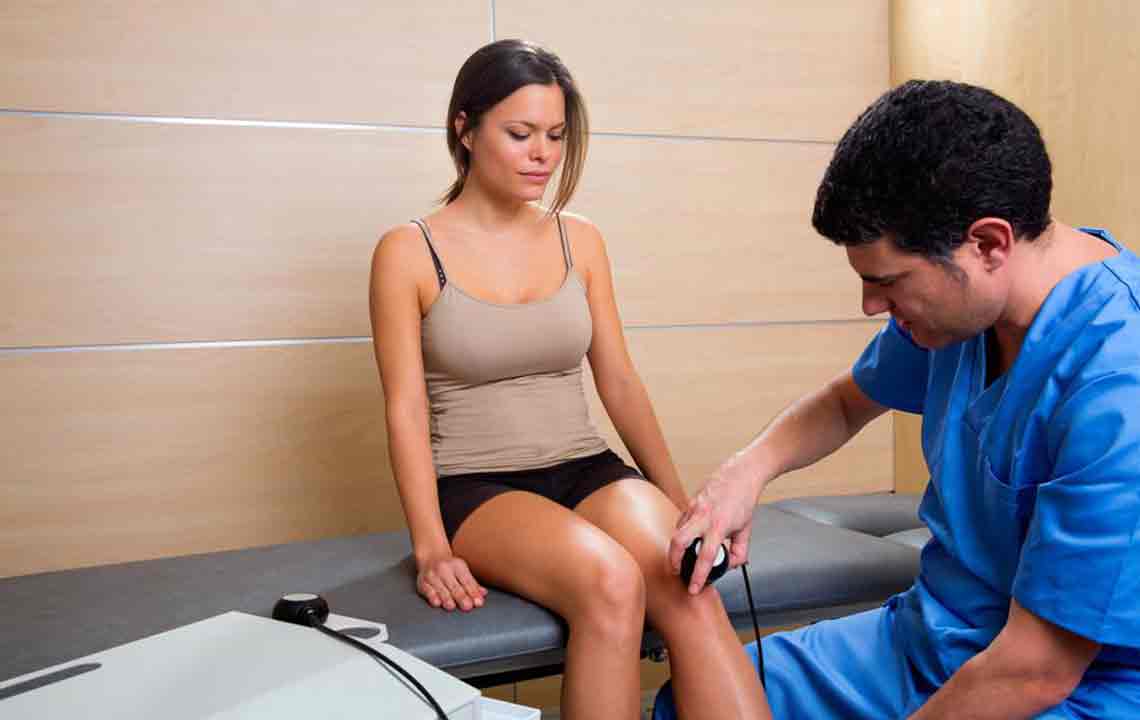What are Your Options for Knee Pain Treatment
Knee pain is one of the most common issues that are reported to the doctors. It may be mild or moderate, or even severe and chronic. But be it a sprain or arthritis, there are many ways you can combat the pain.
Some types of knee ache may require surgery, like severe cases of arthritis, or the return of knee pain even after surgery. But if the pain is because of inflammation, minor injury, or mild arthritis, there are some things you can do to treat the pain on your own.
Read further to understand how.
The RICE Treatment
This is a simple first aid knee pain treatment at home where RICE stands for Rest, Ice, Compression, and Elevation.

Make sure that you sit down and apply an ice bag or a cold compress on your knee. You can even use frozen vegetables, like peas, in case you don’t have ice readily available. This helps in reducing the swelling of your knee muscles.
You can also use a compression bandage to reduce the swelling, but make sure that you don’t tie it too tightly and cut off blood flow. While you’re resting, keep your foot at an elevated level.
But also make sure that you don’t rest too much, this could weaken your muscles and worsen the pain.
Tai Chi
Tai Chi is an ancient form of Chinese mind and body exercise and helps improve flexibility and balance. Research has found that Tai Chi is extremely beneficial for those with osteoarthritis. It helps in reducing the pain and also increases the range of motion. The mental discipline acquired with this can also contribute to improve the pain threshold and cope with chronic knee pain.
Weight Management And Exercise
Find an activity that keeps your joints moving to help with your knee pain treatment. A daily dose of exercise could help reduce your knee pain. Leaving your knee rested for long periods could stiffen your muscles and lessen the range of your movement and make matters a lot worse.
Being overweight can worsen the problem too, so, it is important that you take care of your weight.
Heat And Cold Therapy
Use a hot pad on your knee when you are resting to avoid your muscles from becoming stiff. In case you have a swelling, you can use an ice pack to reduce the inflammation and give you relief. Use the cold and heat pads on your knee alternatively. If you have just suffered an injury, then use the ice pack for a longer durations in the first 24 hours.
Herbal Ointment
The research was made and published in the Pakistan Journal Of Biological Sciences on a salve made from mastic, cinnamon, sesame oil, and ginger. They found that salve produced results as effective as any other over-the-counter creams for arthritis.
Willow Bark
Willow bark is an extract made from the bark of several willow trees and has been used as a natural painkiller for several centuries. An active ingredient is extracted from the willow bark called salicin and is used pain relieving in medicines. This is similar to the salicylate present in several over-the-counter medications for arthritis.
It is because of this feature of Willow bark that it is effective when used for knee pain treatments. This extract is also commonly used by other herbalists to treat pain, inflammation, and also fever.
However, doctors don’t prescribe it if you have an allergy towards aspirin or take blood thinners.
Ginger
Ginger is available in many forms, and you can buy it in the form of a pre-packaged supplement from several stores. A study has found that including ginger in your diet along with the prescription medication for arthritis have helped produce great results for treating knee pain.
Chondroitin Sulfate And Glucosamine
Chondroitin sulfate and glucosamine have become quite popular in the last decade because of their ability to improve joint health. They don’t produce adequate results for mild to moderate osteoarthritis but is extremely effective for those with severe pain.
Acupuncture
This is a form of traditional Chinese treatment where needles are inserted at certain points in your body to help relieve pain. Research has found that electroacupuncture can assist in decreasing the stiffness of the knees and increases muscle strength and flexibility.
Patients use this to get relief when they are waiting for their knee surgery. Sometimes, it is even used as an alternative to knee surgery. But make sure that you discuss this thoroughly with your acupuncture specialist (acupuncturist) as not all bodies respond to this.
Make sure that you are cautious when you attempt to treat your knee pain at home. Consult with your doctor before you try these treatments on your own.

